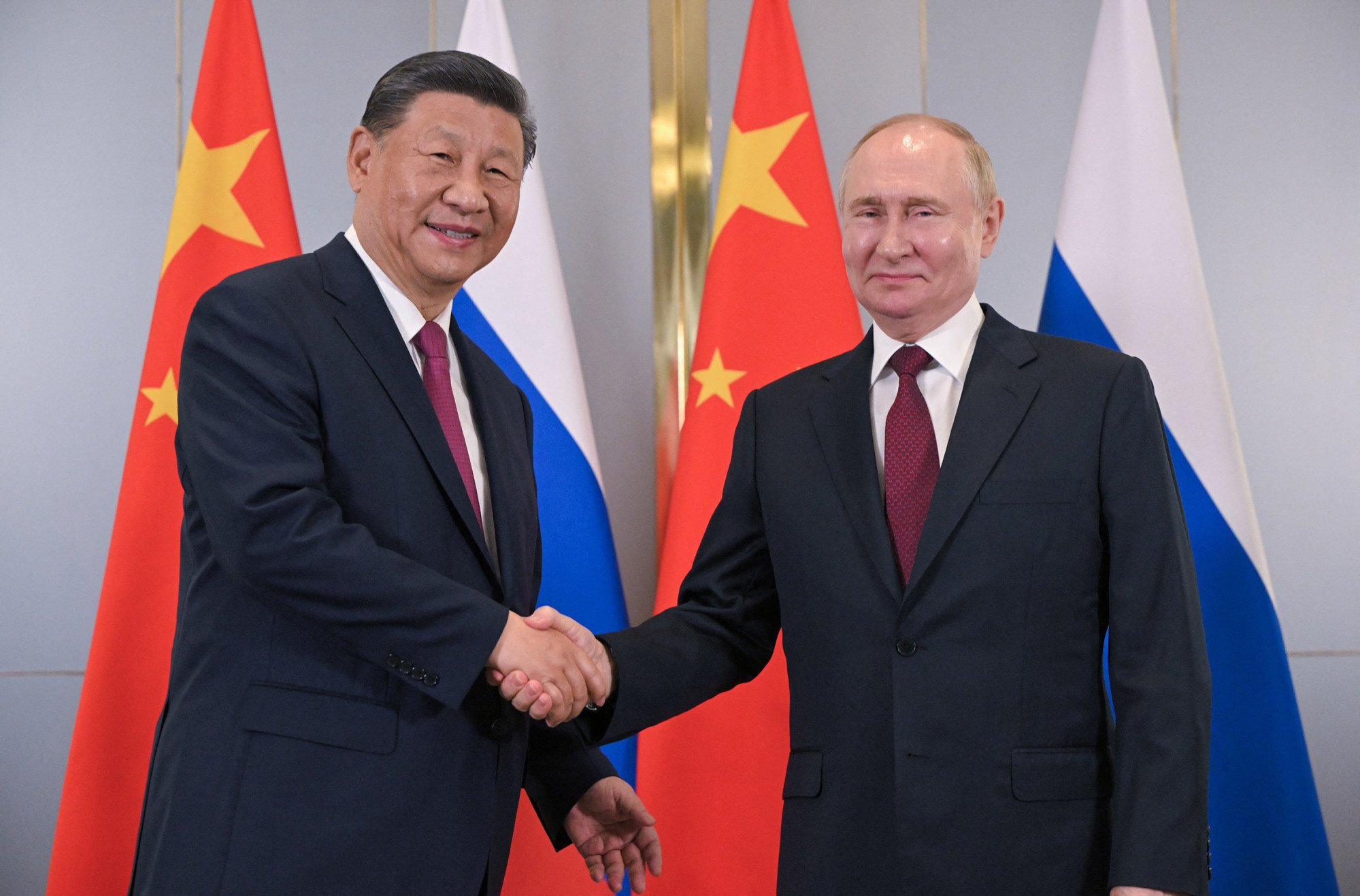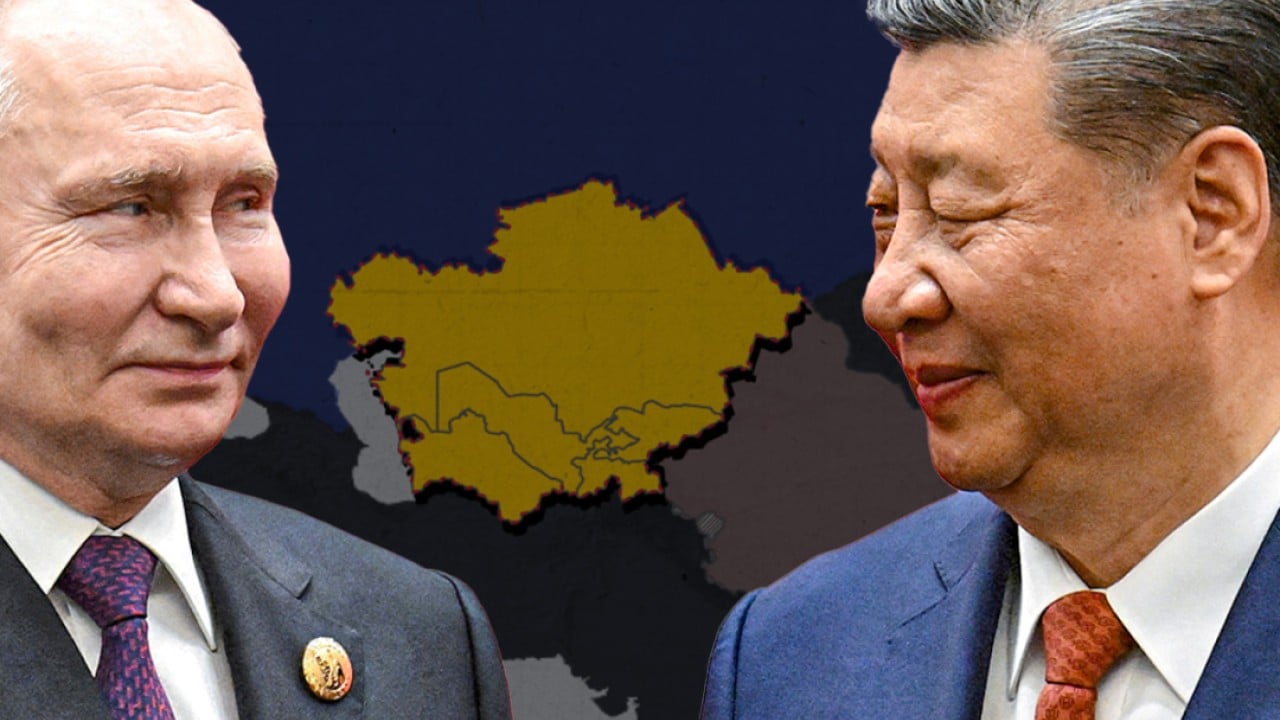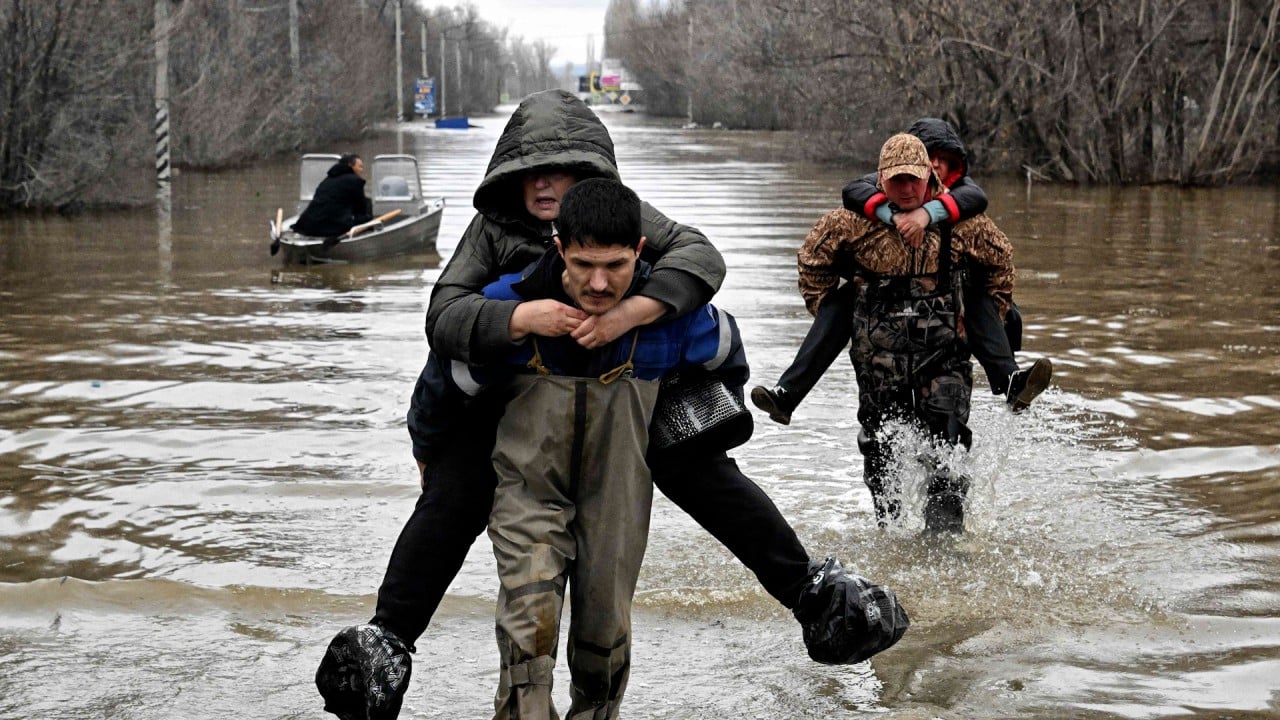Chinese President Xi Jinping met his Russian counterpart Vladimir Putin for the second time in less than two months on Wednesday, making him the world leader with the most frequent contact with the isolated Russian strongman.
Xi and Putin met in Astana, the capital of Kazakhstan, on the sidelines of the Shanghai Cooperation Organisation summit, which both leaders are attending.
It was the fifth face-to-face meeting between the two men since Russia’s invasion of Ukraine in February 2022 and the second since Putin was re-elected in March.
In May, during Putin’s visit to China, both leaders vowed to deepen the “comprehensive strategic partnership” between China and Russia, including strengthening defence and military ties.
At Astana, Xi spoke highly of Putin’s visit in May, saying that it provided important planning for the next step in the development of relations and that the implementation of cooperation in various areas were “progressing steadily along the established track”.
Xi said the two countries should continuously “nurture the unique value of China-Russia relations and explore the endogenous dynamics of cooperation” in the face of a chaotic international situation and external environment, state broadcaster CCTV reported.
“We must make efforts to safeguard the legitimate rights and interests of the two countries and defend the basic principles of international relations,” Xi told Putin.
Putin hailed the “golden age” of the bilateral ties, an era “being built on the principles of equality, mutual benefit and respect for each other’s sovereignty”, according to Russia’s state TASS news agency.
“We have stated that Russian-Chinese relations of comprehensive partnership and strategic cooperation are in the best period of their history,” he said, recalling the “warm welcomes” he received in the northeastern city of Harbin and “substantial talks” with Xi.
Two weeks ago, Putin also visited Vietnam and North Korea; during his trip to Pyongyang, he signed a mutual military aid agreement with that nation’s leader Kim Jong-un.
At the same time, China has expanded its presence in Central Asia, traditionally part of Russia’s sphere of influence.
Last year, China overtook Russia to become Kazakhstan’s biggest trading partner, with two-way trade topping US$41 billion.
In a sign of that growing relationship, Xi also held talks on Wednesday with his Kazakh counterpart Kassym-Jomart Tokayev, backing Astana’s bid to join Brics, marking a further expansion of the China and Russia-led association that is rivalling the Group of Seven in economic strength.
“China is ready to work closely with Kazakhstan within the framework of the United Nations and other multilateral organisations, to practice genuine multilateralism and to safeguard the common interests of the two countries and of developing countries,” Xi was quoted by state news agency Xinhua as saying.
“China supports Kazakhstan in joining the Brics cooperation mechanism, playing the role of a ‘middle power’ on the international stage and making its due contribution to global governance.”
Xi also vowed deeper economic and technological cooperation with Kazakhstan, ranging from traditional energy, agriculture and minerals to the new fields such as “electric vehicles, new energy, cross-border e-commerce, and satellite communications”.
Xi, who last visited Kazakhstan in September 2022, also called for deepening transport connections with the landlocked Central Asian country and more frequent people-to-people exchanges.
Tokayev said that cooperation between China and Kazakhstan was in a “golden era”.
“Deepening friendly and strategic cooperation with China is an unswerving strategic priority for Kazakhstan,” Xinhua quoted Tokayev as saying.
He added that Astana would strengthen its economic cooperation with China under the Belt and Road Initiative, China’s massive global infrastructure push.
Temur Umarov, a fellow at the Russia Eurasia Centre at the Washington-based Carnegie Endowment for International Peace, said that Kazakhstan and Tajikistan were “unique partners for China in security dimensions”.
“I think what Xi Jinping is doing is trying to get the maximum out of his visit to the region,” he said.
Kazakhstan shares a border of more than 1,700km (1,056 miles) with the Xinjiang Uygur autonomous region in China’s northwest, and Astana has been seen as a major partner by Beijing in its crackdown on terrorism in Xinjiang.
Beijing began the crackdown in 2016 after what it said was decades of ethnic tensions and unrest in Xinjiang, as well as cross-border terrorism militant activities.
Kazakhstan was also one of the five original members of the “Shanghai Five” bloc that later became the SCO following the accession of Uzbekistan in 2001.
The group has since expanded its membership to India, Pakistan and Iran, and allowed several countries including Turkey and Saudi Arabia to join as dialogue partners. Its functions have also expanded to cover broader issues, including industrial chain security and economic cooperation.
Wang Yiwei, a professor of international relations at Renmin University, said Kazakhstan had been seeking closer links with China in the aftermath of Russia’s invasion of Ukraine, especially on the economic front.
“Astana hopes to balance [dependence on Russia] with China’s help because since the Russia-Ukraine conflict, the Central Asian countries have had a growing sense of insecurity,” he said.
Wang added that Kazakhstan was looking to China to upgrade its production capacity, introduce more digital technology and develop e-commerce.
The total value of Chinese direct investment in Kazakhstan amounted to nearly US$7 billion by the end of 2021, according to China’s Ministry of Commerce.
Astana has also been a big promoter of a railway route linking China to Europe via Kazakhstan, giving the landlocked nation access to the sea.

The railway is part of what is known as the Trans-Caspian International Transport Route, which moves goods through Kazakhstan, the Caspian Sea, Azerbaijan, Georgia, Turkey and the Black Sea to Europe – skipping Russia.
Many European and Chinese traders, out of fears of sanctions or of being seen as friendly with Russia, are also eyeing the Caspian Sea route.
Xi threw his support behind the route in 2022, vowing to expedite construction of the Caspian Sea route under the Belt and Road Initiative.
On Wednesday, Xi and Tokayev took part in the opening of the China-Europe Trans-Caspian Express via video link, witnessing the arrival of the first Chinese trucks by the highway at a Caspian Sea port.




